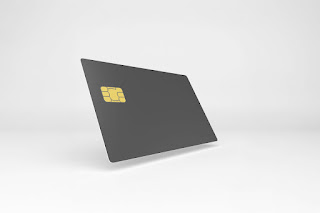Beyond Plastic: Why Modern Corporate Cards Are Built for Digital-First Businesses

In today’s digital-first business world, managing expenses, tracking team spending, and ensuring compliance are no longer tasks for spreadsheets and end-of-month reconciliations. With remote work on the rise, SaaS tools dominating the tech stack, and agility becoming a competitive advantage, traditional corporate cards simply don’t cut it anymore.
Enter modern corporate cards—financial tools designed for businesses that operate online, scale quickly, and demand real-time control. These cards go beyond plastic, offering digital-first features that empower teams, protect budgets, and streamline financial workflows.
In this article, we’ll explore how modern corporate cards are transforming business finance in the U.S., why they’re tailor-made for digital-first companies, and what to look for when choosing one.
The Rise of Digital-First Businesses
Over the last decade, the U.S. has seen an explosion of digital-first companies. From SaaS startups and ecommerce brands to remote-first agencies and cloud-based consultancies, businesses are increasingly born and built online.
These companies:
- Operate in real time
- Use remote or hybrid teams
- Rely on dozens of cloud-based tools
- Scale quickly, often globally
- Need fast, flexible financial tools to support their agility
The problem? Legacy corporate cards were never designed for this world.
They’re slow to issue, hard to manage across distributed teams, and offer limited visibility and customization. Digital-first businesses need something smarter—and that’s exactly what modern corporate cards deliver.
Modern corporate cards are next-generation financial tools offered by fintech platforms rather than traditional banks. They come with features specifically built for today’s business environment, including:
- Virtual and physical card issuance in minutes
- Custom spend limits by user, team, or category
- Real-time transaction tracking
- Automated receipt collection and tagging
- Integration with accounting software like QuickBooks, Xero, and NetSuite
Popular U.S.-based providers include Brex, Ramp, Divvy, Airbase, and Stripe Corporate Card—all of which offer a smart, cloud-based alternative to legacy banking cards.
Why They’re a Perfect Fit for Digital-First Teams
Here’s why modern corporate cards are tailor-made for the way digital-first businesses work:
Instant Issuance for Fast-Moving Teams
Need to give a freelancer or new employee a corporate card for ads or travel? With a modern platform, you can issue virtual cards in seconds, without waiting for physical delivery.
Use Case: A remote team hires a new growth marketer. They’re issued a virtual card during onboarding and can immediately start running paid campaigns—with spend limits already in place.
Real-Time Visibility and Control
Traditional corporate cards report transactions days or even weeks later. That’s too slow for digital-first companies operating in real time.
Modern cards show live transactions, update budgets instantly, and allow finance teams to monitor spending as it happens—down to the individual or vendor level.
Benefit: No more month-end surprises. CFOs and controllers can stay ahead of budget overruns before they happen.
Custom Spend Limits to Match Agile Structures
Digital businesses often have small teams making big decisions. Modern corporate cards allow you to:
- Set limits by department, employee, or use-case
- Restrict spending by vendor or category
- Set expiry dates for one-time or project-based cards
This flexibility means teams can move quickly without compromising financial oversight.
Integration with Cloud-Based Tools
Digital-first businesses rely on tools like Slack, Notion, Gusto, and Asana—and their finance stack is no different. Modern cards integrate directly with:
- Accounting software (QuickBooks, Xero, NetSuite)
- Expense tracking tools (Expensify, Zoho Expense)
- HR platforms (Gusto, Rippling)
- Slack/Email notifications
These integrations help automate workflows, cut down on manual reporting, and reduce reconciliation time dramatically.
Fraud Protection and Security Built for the Web
With online transactions come new threats. Modern corporate cards offer:
- Tokenized virtual cards (unique to each vendor)
- One-time use cards for safer online transactions
- Instant card freezing or deletion
- Audit logs and approval trails
This is critical for digital-first businesses where card misuse, especially on subscriptions or ads, can go undetected for weeks with legacy systems.
Better Cash Management and Rewards
Many fintech issuers offer cashback on all spending, with no annual fees or interest (as they’re often charge cards, not revolving credit). They may also offer net-30/60/90 terms, helping companies with cash flow.
Example: Ramp offers 1.5% cashback on all purchases, while Brex offers enhanced rewards for categories like travel, software, and dining.
For a growing business spending $20,000/month, this can mean $3,000–$5,000/year in cashback or rewards.
Impact on Finance Teams
Modern corporate cards aren’t just convenient—they’re strategic tools. For finance leaders, they:
- Eliminate manual expense reports
- Enable real-time budget monitoring
- Simplify audits with clean digital records
- Improve forecasting accuracy
Instead of chasing down receipts and spreadsheets, finance teams can focus on analysis, planning, and helping the business grow.
Final Thoughts
The modern workplace is fast, digital, and distributed. It demands tools that move at the speed of business—and modern corporate cards deliver exactly that. They offer flexibility, control, and transparency that legacy systems simply can’t match.
For digital-first businesses in the U.S., switching to a smart, integrated card platform isn’t just a convenience—it’s a competitive advantage.

Source: Beyond Plastic: Why Modern Corporate Cards Are Built for Digital-First Businesses


